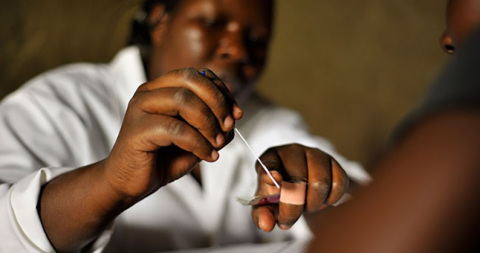Our project teams work in 15 priority countries committed to addressing policy, financing, delivery, and socio-economic barriers to accessing contraceptive commodities and information. Activities focus on the following three strategies to ensure equitable access to reproductive health commodities and advance contraceptive security:
- Leverage global commodity procurement and logistics to increase availability of health commodities
- Offer technical leadership to strengthen global demand and financing, and help ensure availability of existing and promising new reproductive health commodities
- Foster more stable, healthier markets by identifying areas in which USAID can improve supply security, affordability, and product appropriateness as well as influence global capacity investments
Current country presence includes: Angola, Burundi, Ethiopia, Ghana, Haiti, Liberia, Madagascar, Malawi, Mozambique, Nepal, Nigeria, Pakistan, Rwanda, South Sudan, and Zambia.
